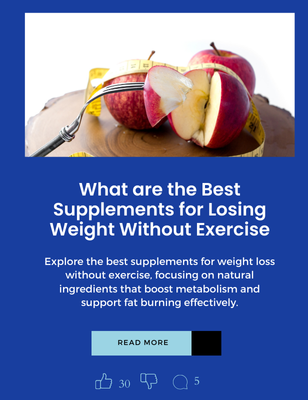Selecting the best supplements for losing fat can be a daunting task in the expansive market of dietary aids. While no supplement can replace a healthy diet and exercise, certain accessories may enhance the fat-loss process. It is essential to understand that fat loss supplements aim to complement lifestyle changes and should be used as part of a holistic approach to weight management. Supplements can range from natural extracts that may boost metabolism to compounds that support muscle maintenance. However, it is critical for consumers to prioritize products backed by scientific research and to consider their safety profiles.

When considering fat loss supplements, it’s important to identify products that align with individual health goals and needs. Protein supplements, for example, play a crucial role in muscle maintenance, which is vital for sustaining a higher metabolic rate and improving body composition. Meanwhile, some individuals may benefit from supplements that address cravings and support overall health, such as fiber or green tea extract. Overlooking the importance of sleep, stress management, and consistent exercise can undermine the potential benefits of any weight loss supplement. Therefore, those seeking to optimize their fat loss process should take a comprehensive look at their lifestyle.
Key Takeaways
- Supplements should be used to complement a healthy lifestyle, not replace it.
- Protein supplements are integral for preserving muscle and boosting metabolism.
- Adequate sleep and stress management are essential for maximizing the effectiveness of fat loss supplements.
Understanding Fat Loss

Fat loss refers to the reduction of fatty tissue, commonly known as body fat, in the human body. It is an integral component of weight management and can significantly impact a person’s body mass index (BMI) and overall health. Energy expenditure plays a critical role in this process, involving converting food into energy that fuels bodily functions and physical activities.
A fundamental principle in fat loss is that energy expenditure must exceed calorie intake to achieve a deficit, prompting the body to utilize stored fat as a fuel source. Here are key factors influencing fat loss:
- Metabolism: The body’s metabolism dictates the rate at which it burns calories. Higher metabolic rates can facilitate more efficient fat loss.
- Physical Activity: Regular exercise increases calorie burn and can contribute to a more significant energy deficit.
- Diet: Maintaining a balanced diet low in excess calories and high in nutrients is crucial for reducing body fat.
It’s important to approach fat loss with sustainable lifestyle changes to prevent obesity and its associated risks. Methods for achieving fat loss should focus on long-term habits rather than quick fixes.
| Factor | Role in Fat Loss |
|---|---|
| Metabolism | Determines calorie burn rate. |
| Calorie Intake | Should be managed to create a deficit. |
| Physical Activity | Increases energy expenditure. |
Adopting strategies that combine diet, exercise, and behavioral modifications can lead to effective fat loss and improved health outcomes.
The Role of Diet in Fat Loss
Diet plays a crucial role in the process of losing fat. It’s grounded in the principle of calorie intake: to lose weight, one must consume fewer calories than the body expends. Achieving a calorie deficit prompts the body to turn to stored fat for energy, leading to fat loss.
Nutrition cannot be overlooked when discussing diet. A nutrient-rich diet helps support the body’s overall function while it sheds fat. An emphasis on macronutrients—protein, carbohydrates, and fats—is critical. Protein, in particular, is essential; it supports muscle maintenance and contributes to satiety, helping to reduce overall calorie consumption.
The inclusion of fiber in the diet is similarly beneficial for fat loss. High-fiber foods help decrease hunger and can also improve digestive health. They aid in stabilizing blood sugar levels, which can reduce cravings and assist with fat-burning.
Meanwhile, fat should not be eliminated. Healthy fats support energy production and nourish the body, even during a calorie deficit.
Choosing natural foods over processed ones typically ensures higher nutritional value and fewer added sugars or unhealthy fats. Whole foods, such as vegetables, lean proteins, whole grains, and fruits, are naturally more nutrient-dense and less calorie-rich, supporting a balanced diet conducive to fat loss.
Incorporating these dietary practices supports a healthy lifestyle and sets the foundation for effective and sustainable fat loss.
Critical Supplements for Weight Loss
When looking for supplements to aid in fat loss, various options may enhance the body’s natural weight management processes. They are used in conjunction with a balanced diet and exercise regimen.
Green Tea Extract: Green tea is revered for its high antioxidant content, specifically catechins. The most notable one, EGCG, has been associated with promoting thermogenesis, potentially boosting metabolism.
Caffeine: Commonly found in coffee, caffeine is known for its ability to increase alertness. It also can act as a fat burner by enhancing energy expenditure and fat oxidation.
Conjugated Linoleic Acid (CLA): This type of fatty acid is suggested to support modest fat loss. It does this by modulating fat metabolism, as highlighted on BarBend.
L-Carnitine: This supplement aids in the transport of fatty acids into cells to be used for energy and, thus, can support fat loss efforts, especially when combined with exercise.
Fiber: A high-fiber diet can naturally reduce calorie intake by promoting feelings of fullness. Fiber supplements are an easy way to increase one’s fiber intake without significantly increasing calorie consumption.
Protein Supplements: Adequate protein intake is critical for muscle maintenance during weight loss. Protein powders provide a convenient and low-calorie method to ensure enough protein in the diet.
In choosing supplements, individuals must consult healthcare providers to ensure safety and compatibility with their health conditions and objectives.
Natural Supplements and Their Effects

Natural supplements can play a role in enhancing fat loss through various mechanisms, such as boosting metabolism or suppressing appetite. This discussion will focus on the specific effects of green tea paired with caffeine, the role of fiber in appetite control, and how conjugated linoleic acid (CLA) may influence fat reduction.
Green Tea and Caffeine
Green tea is rich in antioxidants and contains natural caffeine, which can enhance fat oxidation and energy expenditure. Combined, these compounds may work synergistically, potentially leading to increased energy levels and a more efficient fat-burning process.
Fiber and Appetite Control
Dietary fiber plays an essential role in weight management by promoting a feeling of fullness, which can lead to a natural reduction in calorie intake. Soluble fiber, in particular, can assist in appetite control by absorbing water and forming a gel-like substance in the gut, slowing down digestion and extending the sensation of satiety.
Conjugated Linoleic Acid (CLA)
CLA is a type of fat found in certain foods and is available as a supplement. It is believed to modulate metabolism with the potential to reduce body fat in some people. CLA may influence the metabolism of stored body fat, although its effectiveness can vary among individuals.
Protein Supplements and Muscle Maintenance
Maintaining muscle mass is as crucial as losing fat when engaging in strength training. Protein supplements, particularly whey protein isolate, emerge as a cornerstone in an effective diet for muscle preservation. Whey protein isolate is a highly refined form of protein low in fats and carbohydrates, making it an excellent choice for those aiming to retain lean muscle while trimming fat.
- Amino acids in protein supplements are the building blocks of muscle growth. The high amino acid profile in whey protein supports muscle recovery post-exercise.
- Muscle growth requires not just consistent exercise but also adequate nutrition. Protein supplements can swiftly deliver the necessary nutrients the muscles need to rebuild and grow after strength training.
- Building muscle does not always mean an increase in size. To develop lean muscle, the protein must repair the muscle fibers without contributing to fat storage. Whey protein isolate is effective because it is absorbed quickly and aids in recovery.
Incorporating whey protein into a diet can assist in streamlining the nutrition that goes towards muscle repair, thereby supporting the maintenance of muscle mass during fat-loss efforts.
Exercise routines are best supplemented by a protein intake that matches the intensity of the workouts. For optimal results, individuals should focus on balanced information of protein that contributes to muscle maintenance without excessive calories.
To learn more about the efficacies of protein powders for weight loss, such as whey isolate’s role and benefits, refer to resources such as Healthline’s insights on protein powders or Muscle & Fitness’s guidance on the subject.
How Exercise Enhances Supplement Effectiveness

Exercise is pivotal in maximizing the effectiveness of supplements aimed at fat loss. When individuals integrate regular workouts into their routines, they facilitate a higher energy expenditure, which can be further augmented by fat loss supplements.
- Cardiovascular activities like running or cycling elevate the heart rate, increasing the number of calories burned. These exercises complement thermogenic supplements that stimulate metabolism and fat burn.
- Strength training contributes to building and maintaining muscle mass, which can help boost metabolic rate. Supplements that support recovery and muscle growth can make these workouts more productive.
Incorporating cardio and strength elements in exercise routines ensures a well-rounded approach to fitness that encourages fat loss and develops physical strength. Supplements designed to enhance performance and provide energy can make these exercises more effective by allowing for higher intensity and longer workout sessions.
Exercise not only ramps up the innate benefits of weight loss supplements but also ensures that the body remains in a state that is conducive to fat loss over muscle loss. By maintaining a balance between cardiovascular and muscle-strengthening exercises, individuals can create an optimal environment for supplements to work effectively.
In summary, the relationship between exercise and supplements is synergistic with physical activity serving to amplify the desired outcomes of accessories intended for fat loss, muscle gain, and improved athletic performance.
Importance of Clinical Research and Safety

When considering supplements for losing fat, it is essential to base choices on robust scientific evidence from clinical trials. These studies provide reliable information on efficacy, dosage, and safety. Consumers must look for supplements that have undergone rigorous testing against a placebo to determine their actual effect.
Research in dietary supplements focuses on discovering the potential impact on body composition. However, not all accessories are equal, and some may have side effects. Therefore, identifying those that have been validated by research helps to mitigate risks. For instance, findings on the safety evidence for each ingredient provide crucial insight into the long-term implications of their use.
Clinical trials are instrumental in assessing the practical outcomes of dietary supplements. Products backed by clinical research reassure the user of their efficacy. In the United States, the FDA does not strictly regulate supplements as it does with medicines, which makes understanding the provided scientific literature even more significant.
A healthcare professional, typically a doctor, should be consulted before starting any weight loss regimen with supplements. They can provide recommendations based on current research and understanding of an individual’s health profile. Adhering to the prescribed dosage is essential to avoid potential adverse effects and ensure safety.
In summary, clinical research serves as the backbone for understanding the effectiveness and safety of fat-loss supplements. With many options available, focusing on products subjected to rigorous scientific scrutiny is paramount for health and safety.
Supplements to Support Overall Health

While focusing on fat loss, it’s essential to remember that supplements should complement a balanced diet to support overall health. Specific vitamins and minerals play critical roles in metabolism, immune system function, and overall well-being, making them vital during weight management.
Omega-3 fatty acids, commonly found in fish oil, are essential for heart health, potentially helping to regulate blood pressure and reduce inflammation. When selecting an omega-3 supplement, it’s critical to look at the EPA and DHA content to ensure adequate intake.
Magnesium is a versatile mineral that supports over 300 biochemical reactions in the body, including energy production and muscle function. A sufficient intake of magnesium can assist with maintaining a healthy metabolism, which is beneficial for healthy weight loss.
Vitamin D is crucial for bone health, plays a significant role in immune function, and may even help regulate mood. Many individuals may be deficient in vitamin D so that supplementation could be necessary, especially in regions with limited sunlight.
Incorporating antioxidants can neutralize free radicals, reduce oxidative stress, and support overall health. Foods rich in antioxidants are preferable, but supplements can also provide an additional source.
Probiotics, beneficial bacteria in the gut, are important for digestive health and can influence the body’s nutrient absorption, indirectly supporting a steady weight loss process.
Here’s a simplified breakdown:
- Omega-3 Fatty Acids: Beneficial for heart and inflammatory response.
- Magnesium: Supports a healthy metabolism and muscle function.
- Vitamin D: Essential for bone health, immune support, and mood regulation.
- Antioxidants: Helps combat oxidative stress and support overall health.
- Probiotics: Aid digestive health and may enhance nutrient absorption.
Understanding and Managing Cravings
Managing cravings is a crucial step in successful weight management. Cravings are intense desires for specific foods, often high in calories or sugar. They differ from hunger, which is the body’s physical need for food. Managing cravings is important to maintain a balanced diet and can contribute to fat loss when accompanied by appropriate lifestyle choices.
Stress can exacerbate food cravings, triggering emotional eating. To combat this, stress management techniques such as deep breathing or yoga are recommended. Moreover, certain dietary supplements may assist in managing cravings. Ingredients like green tea extract and guarana can help by promoting satiety and enhancing metabolic rate.
Incorporating sufficient fiber into the diet is also beneficial. High-fiber foods increase feelings of fullness, thereby helping to control appetite. Foods such as fruits, vegetables, and whole grains are excellent sources of fiber.
Supplements that include L-theanine, an amino acid found in green tea, may improve mood and reduce stress-related cravings. It’s important to approach these supplements with a skeptical eye, ensuring they’re backed by scientific evidence and safe to use.
It’s essential to navigate the world of dietary supplements with caution, as they’re not a magic solution. A balanced diet, regular exercise, and a holistic approach to wellness generally yield the best results for controlling cravings and supporting fat loss.
The Impact of Sleep and Stress on Weight Loss

Getting adequate sleep plays a significant role in weight loss. Lack of sleep may lead to increased appetite and a preference for high-carbohydrate foods, thus potentially thwarting weight loss efforts. Studies have shown that when individuals are deprived of sleep, late-night snacking increases, and they often reach for carb-rich snacks. One study suggests that short sleep durations may be associated with higher body mass index (BMI) and weight gain.
- Energy and Metabolism: Sleep deprivation can negatively impact one’s metabolism and the body’s ability to regulate energy production.
- Appetite Regulation: With insufficient sleep, the balance of hunger hormones, such as ghrelin and leptin, is disturbed, which may lead to increased hunger and calorie intake.
Stress also plays a pivotal role in managing body weight. Chronic stress can trigger the release of cortisol, a stress hormone that can lead to weight gain, particularly around the midsection. It can cause both weight loss or gain, depending on the individual and the situation. Besides, elevated cortisol levels may also interfere with recovery and mood, which could indirectly affect a person’s ability to focus on healthy eating and exercise habits.
Consistently high stress can lead to:
- Changes in weight loss patterns due to the influence on metabolism.
- An impact on appetite, where some individuals may eat less and others more when stressed.
In summary, both sleep and stress significantly influence an individual’s ability to lose weight effectively. Managing these factors is crucial for holistic well-being and successful weight management.
Addressing Weight Loss Plateaus

When an individual’s weight loss journey hits a stall, commonly known as a plateau, it becomes crucial to reassess and modify one’s strategy. This halt in progress can be due to the body’s metabolism adapting to lower calorie intake and decreased body fat.
- Reevaluate Caloric Intake: They may need to adjust their calories to kickstart fat loss again. A slight decrease in caloric intake can sometimes be necessary as the body requires fewer calories with weight loss.
- Enhance Exercise Routine: Incorporating a mix of resistance training and cardio can boost their metabolism and enhance fat loss, especially around the stomach fat area.
- Consider Dietary Supplements: Certain supplements may aid in overcoming the plateau. For instance:
- Green Tea Extract: Known to increase resting metabolic rate and support fat loss potentially.
- Conjugated Linoleic Acid (CLA): Might help reduce body fat in some people.
- Protein Supplements: These can enhance performance and assist in maintaining muscle mass during calorie restriction.
Individuals should consult with a healthcare provider before adding any new supplements to their regimen for optimal results. They need to understand that accessories should complement, not replace, nutritional and exercise efforts. In some cases, individuals need to focus on other aspects such as stress management and sleep quality, which can also play roles in breaking through a weight loss plateau.
Frequently Asked Questions
When considering supplements for weight loss, one may wonder about the effectiveness of natural options, the best pills for quick results, gender-specific formulas, essential vitamins for older adults, and the relationship between vitamins and metabolism. Culturally specific remedies such as Japanese herbs also spark interest in their weight management potential.
Which natural supplements are effective for enhancing weight loss?
Certain natural supplements are known for supporting weight loss efforts. Among them, green tea extract and conjugated linoleic acid have been observed to offer metabolic benefits.
What are the top weight loss pills known for quick results?
While rapid results are often sought after, it’s important to approach weight loss pills with caution. Products with a reputation for fast outcomes should have their safety and efficacy verified by trusted institutions.
Can you identify the best fat-burning supplements for men?
Some fat burners are designed with men in mind. Ingredients like caffeine and creatine have been frequently included in these supplements due to their ability to support increased metabolic rate and muscle synthesis.
What vitamins are crucial for individuals over 40 to aid in weight loss?
For those over 40, vitamins B, especially B12, and D are critical as they help improve energy levels and bone health. Correcting deficiencies in these vitamins can support weight management.
How do vitamins contribute to weight loss and metabolic rate improvement?
Vitamins play a crucial role in metabolic processes. For example, B vitamins are directly involved in energy production in the body, while vitamin D has been linked to the regulation of fat cells and body weight.
Are there specific Japanese herbs recommended for weight management?
Yes, Japanese herbs like matcha and konjac are often recommended for weight management. Matcha is high in antioxidants, while konjac is known for its high fiber content, which can aid in satiety and digestion.






















